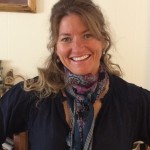January 21st, 2018

Yeehaw! For a minute there, I forgot I was/am 52. I could have sworn I was 10 years old again. (I highly recommend this for all grownups)
“We are breathless, but we love the days. They are promises. They are the only way to walk from one night to the other.”–Nina Riggs, The Bright Hour
(NOTE: Before you read this post, I want to offer my thoughts and love to any of you who have cancer, and/or an other life-threatening disease. For those of you who have beat cancer, I have great respect and admiration for you. While I have been, and am close to, people who have cancer, who struggle or suffer from various diseases, who are elderly, and/or who might otherwise be confronting their mortality, I don’t pretend to know what that’s like. I can only imagine. Please know I want to be sensitive and sensible here, and I hope I don’t say anything here that offends you. If I do, I am so sorry. And while I’m at it, I’m sorry for all of you who have lost loved ones. I do know something about that, and I am sorry for your loss.)
I don’t want to die. I love my family and friends and my life so much that if I live to be 95 it won’t be long enough. Still, I think about death, and my mortality, a lot–and on purpose.
But it hasn’t always been this way. Several things have caused me to keep the prospects of death nearby.
Lori was a wife, mother, grandmother, sister, aunt, and friend to many. She was my friend.
Sometime around the second week of October, in 2011, Lori stopped by my house unexpectedly. I was struggling over things related to someone’s death, and she knew this, and she cared so much she wanted to stop by. We had a meaningful conversation, which included her sharing about an epic biking adventure she had recently embarked upon in California.
After a time, Lori got up to leave, and I walked her out, and we stood for a moment next to her car in my driveway. Lori squared herself in front of me, held each of my shoulders in her hands, and looked at me in the eyes with her sparkly eyes, and said, “For whatever reason, that day was the day that man was to die. I believe we each have a time that we’re meant to die.”
Just days later, on Oct. 19, Lori died suddenly, from an aneurysm. She was only 52. Lori’s passing struck me hard not only because she was a family friend, and we loved and adored her, but also because of those impassioned words she shared with me just days earlier in my driveway. Her belief that we all have our time to die more or less “assigned,” even if we don’t know it, took on a new meaning.
When I went to Lori’s funeral, and as I reflected on her life, I wondered if Lori somehow knew her life would be short. Of course I’m not suggesting that she really did know, but I wonder about it because she lived every day so fully, as if she knew her days were numbered. She was exceptional that way. Other friends or acquaintances have died too early in recent years, and their lives were lived similarly. As I left each of their funerals, I was sad about their passing, but I was also inspired by their examples, and I resolved to live more purposefully, and with a new sense of urgency for my life.
I wrote recently in The Magic Ingredients blog post that I owe much of my current great life to a “Manifesto” I created for myself some years ago. I promised I’d share about it. This post is my effort to do that. Thank you for returning.
I may not wake up tomorrow. These are the words I’ve been reading to myself every single morning since sometime in late 2009.
I’ve shared with a handful of people who are close to me that I have felt as if my life will be short. I really believe this, even though, as far as I know, I have no terminal cancer diagnosis or serious diseases. I’m 51 years old, and by all indications, I’m quite healthy. Exceptionally healthy, even.
So why do I believe my life will be short? Could it be because I’ve practiced believing it, every day, for almost 10 years?
I know, Life is short and Live each day as if it could be your last are not my ideas, and we’ve heard them over and over again by the late Steve Jobs, and other famous people who have made public cases for what I’m trying to do here in my little humble blog. But, at least in my experience, it’s one thing to endorse and buy into a slogan, and another to work to actually believe and embody it. Which is what I have been doing. And while I hope, every day, that it won’t be my last, I determined when writing my Manifesto that I wasn’t going to take any chances. And it has made all the difference.
The statement, “I may not wake up tomorrow,” is the last statement, of several, listed in a “Manifesto” I started writing in 2009 and finished in 2011. At the time, I had made it to the other side of a challenging reinvention of my physical and mental health, and was in the midst of my professional reinvention. I wanted to create a sort of “philosophy of life” document to guide me. I wanted to stay true to my wishes for how I wanted to be in the world, and the life I wanted to live, and to keep the momentum I had created going.
I purposefully took considerable time and reflection to create my Manifesto. It would be a declaration and a “call to action” for me and I wanted to get it right.
Writing, and living my Manifesto has been one of the most constructive and empowering things I’ve ever done. Every day as I read it, the Manifesto “primes” me to live the day fully. When I do the math, it turns out I’ve read my Manifesto about 3,000 times. That’s a lot of affirming.
During the last year, I have worked to be more daring and vulnerable in my writing and in my sharing. Sharing my Manifesto here is part of that. You see, my Manifesto will tell you a lot about me. It’s so personal that I have shared this with only my husband, Jerry, and a handful of people.
Please know that I am not sharing it to show off what is my Manifesto, but rather in hopes that it might inspire you to write your own. (By the way, my mission isn’t to try to inspire people to be like me or to have a life like mine. Rather, my mission is to inspire people about their own lives. Everyone’s Manifesto will look and feel differently, and only you know how you want to live, and what you will need to write.)
Following is my Manifesto. This is my current version of it. It still includes most of the original statements from late 2009, plus numerous additions I’ve made in recent years.
SHELLI’S MANIFESTO (2018)
Pay attention.
In everything I do, I think first of my family, and the most important people in my life.
Every day I have meaningful connections with each of my sons. I make efforts to have rich relationships with them, and they know and can feel, my love.
Every day we’ll connect in meaningful ways as a family.
I will be the best Mom I can be. I will work to grasp less.
I show Jerry my love, and our boys see our love for one another.
And don’t forget our Buddy and Chewy. (updated)
I make time to spend with my parents.
I keep in touch with my sisters and brother.
I value my friends and friendships.
I am a great listener.
I know myself, but I’m always changing. I promise to keep learning about myself.
I pray and reflect–and am grateful–every day.
I am kind. To everyone.
I will be of service to others.
I love my whole life–the wondrous and ordinary parts AND the challenging and sad parts.
Obstacles teach me.
I create fun. I turn drudgery into an adventure.
Every day I play at least a little, and I yell “Yeehaw!” often.
I am at choice. I’m not a victim. I get to choose at any moment what my existence will be. (Viktor Frankl did!)
I will respond, not react.
I am curious. I’ll always ask questions.
I will work to be more patient.
I love Solitude.
I want to be someone who dares to fail. I will be afraid of failing, but I will still dare to fail.
Sometimes I will fail.
I am humble.
Frequently, I will go without, and even fast. I will also enjoy a lot of bacon, ice cream, cake, donuts, coffee and wine.
Read. Every day.
I will wake early, often, and see the sun rise. I will also see some sunsets.
I want to be the person who gets up off the couch to see a rainbow, or who sets her alarm to see a meteor show.
Once in a while, I’ll sleep in.
Write. I am a writer. Act like one.
I want to be the person who takes a plunge in a frigid mountain lake in the wilderness, not the person watching from the shore, being so reasonable.
I practice. Everything.
I don’t want to be so hard on myself. I promise to be more compassionate toward myself.
Most often, good enough is good enough. Seriously!
I will do what’s right.
I inspire others to climb mountains they’re not certain they can climb (real mountains and the mountains in their life.)
Talk less, but say more.
I am as healthy and as fit as I can be so that I can entertain any adventures that come my way.
I am serious, and I’m a goofball. I take life very seriously, and I also don’t take life very seriously.
I am generous.
I champion others.
I am on time–or early.
Every moment counts. (Remember Seneca’s words, “Life is long enough if you know how to use it.”)
Don’t view anything as a waste of time, and it won’t be.
I may not wake up tomorrow.
That is it. My Manifesto may be a little more specific than necessary. For example, I wanted to name items like sunrises and books and drudgery. In doing so, my Manifesto reminds me of the kind of essence I want to embody. But, also, by being specific, the Manifesto can serve as a sort of “To Do” list, instructing me with specific things I can do to help me be who and how I want to be.
I have definitely seen more sunrises and sunsets as a result of this Manifesto. I’ve seen more rainbows and constellation events. I’ve slept in more! I’ve played hard and been more of a “participant” in my family. I’ve viewed drudgery differently, and have worked to be more generous, something that unfortunately doesn’t come naturally for me. I’ve kept my fitness at a high level, and practiced everything more.
I am reading more books than ever before, and I have made strides in not being so self-critical. I have been more loving with Jerry and our sons, and had more meaningful connections with them. I have tried to be a better friend. I’ve dared to fail often and failed often, which means I’ve learned. I am writing more often, and this is a direct result of adding the writing statement to the Manifesto 12 months ago.
And, most importantly, I have done mostly a good job of living each day as if it really could be my last.
One thing I ask myself often, and people I work with, is, Let’s say you have only one week left to live. Now, look at your calendar. Would you change anything? (If Yes, make the changes.) I always think of writer Annie Dillard’s words, How we spend our days is of course how we spend our lives.
Those who know me or work with me know that I have a fascination with books and stories from people who are approaching the end of their life. I’m a voracious reader, and my favorite books are books written by the dying, or about the dying. As hard as I try to view each day as a gift and to live each as if it might be last, no one can do these things better than someone who is dying, and/or approaching the end of their life. I am deeply inspired by the wisdom and generosity offered by people who know they’re near the end of their life.
I mention this here, because, no question, reading such books is also responsible for my ability to better live so fully each of my days. (If you’re interested, some of my all-time favorite books are The Last Lecture, When Breath Becomes Air, The Bright Hour, Tuesdays with Morrie, Chasing Daylight, Being Mortal, To Heaven and Back: A Doctor’s Extraordinary Account of Her Death, Heaven, Angels, and Life Again: A True Story, and others. It is not an exaggeration to say these books serve as textbooks for me. They inform and inspire me about how to live.)
In addition, I’m a fan of the ancient philosophy of Stoicism. For about seven years, I’ve read many books about Stoicism, and by Stoics like Marcus Aurelius, Seneca, and others. I’ve followed with great enthusiasm all that Tim Ferriss has shared about Stoicism. I bring up Stoicism for two reasons that are relevant to this blog post.
The first is the concept of negative visualization, which I’ve made a part of my life since first reading about it. Negative visualization is essentially the practice/act of imagining you’ve lost someone you love, or your job, or your home–or better yet, all of it. It’s imagining that your worst fears come true. By imagining losing what we love and value, we’re likely to cherish more what we have and work to not take these things for granted. A book that has been very influential for me is A Guide to the Good Life: The Ancient Art of Stoic Joy, by William B. Irvine. The book has helped me to be an “observer” of my life, while reminding me to never take the people in my life–or my life, for that matter–for granted.
The second is the Stoics had a meditation practice at the end of their day. Many of us do this already, without realizing it. We lie in bed at night and play back in our minds the movie that was our day. Most of us tend to judge the day. I prefer to use the word, evaluate. It feels more constructive, especially if you tend to be hard on yourself like I am. Every night I reflect on my day, often holding it up against the calls to action in my Manifesto, and I ask myself things like “Could I have handled that conversation with more patience?” “Darn. When Fin was asking me about Friday night, was I looking at my phone, or at him, when I was responding?” For me, this taking stock–this evaluating my day–helps to keep me honest while providing real clues as to how I can be my best self. This process is a natural next step after writing a Manifesto.
Thanks so much for reading. Please feel free to offer a comment below, or to share with me directly any thoughts you have, or questions I might be able to answer that may help or inspire you to create your own Manifesto – your own daily guide for living.
As a gift, I’m including a beautiful poem by Mary Oliver, called The Fourth Sign of the Zodiac, which is about cancer, mortality, the life lived, and the desire for more. I love it.
The Fourth Sign of the Zodiac
By Mary Oliver
1. Why should I have been surprised?
Hunters walk the forest
without a sound.
The hunter, strapped to his rifle,
the fox on his feet of silk,
the serpent on his empire of muscles—
all move in a stillness,
hungry, careful, intent.
Just as the cancer
entered the forest of my body,
without a sound.
2. The question is,
what will it be like
after the last day?
Will I float
into the sky
or will I fray
within the earth or a river—
remembering nothing?
How desperate I would be
if I couldn’t remember
the sun rising, if I couldn’t
remember trees, rivers; if I couldn’t
even remember, beloved,
your beloved name.
3. I know, you never intended to be in this world.
But you’re in it all the same.
so why not get started immediately.
I mean, belonging to it.
There is so much to admire, to weep over.
And to write music or poems about.
Bless the feet that take you to and fro.
Bless the eyes and the listening ears.
Bless the tongue, the marvel of taste.
Bless touching.
You could live a hundred years, it’s happened.
Or not.
I am speaking from the fortunate platform
of many years,
none of which, I think, I ever wasted.
Do you need a prod?
Do you need a little darkness to get you going?
Let me be urgent as a knife, then,
and remind you of Keats,
so single of purpose and thinking, for a while,
he had a lifetime.
4. Late yesterday afternoon, in the heat,
all the fragile blue flowers in bloom
in the shrubs in the yard next door had
tumbled from the shrubs and lay
wrinkled and fading in the grass. But
this morning the shrubs were full of
the blue flowers again. There wasn’t
a single one on the grass. How, I
wondered, did they roll back up to
the branches, that fiercely wanting,
as we all do, just a little more of
life?

Blog Posts I’ve written that are related to many of the things included in my Manifesto:
Solitude is the Medium for Self Realization
Our People Make Us Better
Daring to Fail
Nobodies: I Want To Hear Their Stories
Hungry
An Experience to “Rave” About
What I Learned in Silence
My Weight Loss Journey
What We Learned on our 30-Day Europe Trip
- Categories: Adventure, Family, Life and Leadership
- Tags: best life, core values, daily guide, epic life, manifesto, mission statement, mortality, principles, rituals
- Comments: 11 Comments









